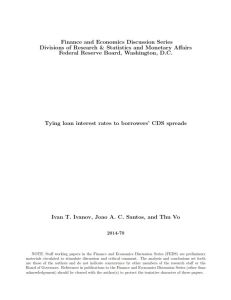Join getAbstract to access the summary!

Join getAbstract to access the summary!
Ivan T. Ivanov, João A.C. Santos and Thu Vo
Tying Loan Interest Rates to Borrowers’ CDS Spreads
Federal Reserve Board, 2014
What's inside?
Resisting a bargain is hard, but cheaper corporate loans may have hidden costs.
Recommendation
The search for greater efficiency in finance is a hallmark of the past few decades. But a good engineer knows that a little bit of friction can keep a system from spiraling out of control. Economists Ivan T. Ivanov, João A.C. Santos and Thu Vo investigate the effects of a recent financial innovation – corporate loan pricing tied to credit default swaps (CDS). Though offering cheaper capital, CDS-linked loans may undermine some of the main stabilizers of the economy. getAbstract recommends this provocative, though technically challenging, investigation into the broader impacts of CDS-linked loans to bankers and corporate finance executives.
Summary
About the Authors
Ivan T. Ivanov is an economist at the Federal Reserve Board of Governors. João A.C. Santos is an economist at the New York Federal Reserve Bank. Thu Vo is a researcher at the Amherst Securities Group.

















Comment on this summary